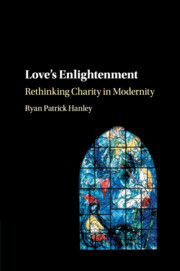Crossref Citations
This Book has been
cited by the following publications. This list is generated based on data provided by Crossref.
Meszaros, Julia
and
De Maeseneer, Yves
2017.
In the Image of Love: Key Voices for Theological Anthropology.
International Journal of Philosophy and Theology,
Vol. 78,
Issue. 1-2,
p.
1.
2017.
Books Received July 2017.
Philosophy,
Vol. 92,
Issue. 3,
p.
497.
Meganck, Erik
2018.
(Re)Inserting charity in education.
Transformation in Higher Education,
Vol. 3,
Issue. ,
Guyer, Paul
2020.
The International Encyclopedia of Ethics.
p.
1.
Matson, Erik W.
2022.
What is liberal about Adam Smith's “liberal plan”?.
Southern Economic Journal,
Vol. 89,
Issue. 2,
p.
593.
Kaptein, Muel
2022.
The Moral Duty to Love One’s Stakeholders.
Journal of Business Ethics,
Vol. 180,
Issue. 2,
p.
813.
Khalil, Elias L.
2023.
DOES FRIENDSHIP STEM FROM ALTRUISM? ADAM SMITH AND THE DISTINCTION BETWEEN LOVE-BASED AND INTEREST-BASED PREFERENCES.
Journal of the History of Economic Thought,
Vol. 45,
Issue. 2,
p.
249.
Walschots, Michael
2023.
The Rationality of Love: Benevolence and Complacence in Kant and Hutcheson.
Ergo an Open Access Journal of Philosophy,
Vol. 10,
Issue. 0,
Kaptein, Muel
2023.
Developing a framework for determining when a company should introduce a new ethical norm.
Business and Society Review,
Vol. 128,
Issue. 1,
p.
3.
Ren, Shuhuai
2024.
Two concepts of virtue: Rousseau on love of fatherland and love of humanity.
The Southern Journal of Philosophy,





